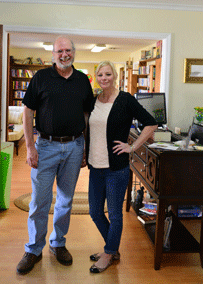-->
Creating main
characters that readers identify with and feel sympathy for requires a special
writing talent. Just when the reader gets to know James Montgomery Jackson’s
main character, Seamus McCree, he surprises or shocks the reader with his
behavior. He seems as brilliant as he is flawed and yet we know he’s a good man.
But even in his extremes, Seamus is always a thinker. Please welcome Seamus
McCree, star of Bad Policy, released by
Barking Rain Press this month, and the next-in-series, Cabin
Fever, to WWK.
Seamus, you gave
up a big job on Wall Street. What happened?
You know, it’s been years and I still get ticked off when I
think about it. I was a highly rated bank stock analyst for one of the big Wall
Street outfits. I wrote a negative report about the prospects for a regional
bank and said to sell the stock. That bank happened to be a client of our firm.
Without my knowledge, my boss softened several of my criticisms of the regional
bank’s practices and changed the final rating to indicate it was okay to
continue to hold the stock.
I found out about the changes the day the report was
released and quit on the spot. By quitting when I did, I gave up a big
six-figure bonus. I have no doubt it was the right thing to do.
Do you enjoy
Cleveland as much as NYC?
Actually, it’s Cincinnati. Don’t feel bad. Everyone outside
of Ohio confuses Cleveland, Columbus and Cincinnati—and Cincinnati is the
hardest to spell.
The day I arrived in Cincinnati I almost walked over someone
in front of me on the sidewalk. It was soooo slow. I loved working in fast-paced
New York; I loved playing in New York, but Cincinnati is a super city. It’s big
enough to have at least one of everything (well, except for a winning football
team; that was way before my time) and small enough you can easily get
anywhere. We’ve got a great symphony, wonderful art galleries, great parks,
ethnic restaurants and a wide variety of neighborhoods.
How did you get
in such a mess in Bad Policy?
I think it’s fair to say it found me. Someone applied an IRA
six pack (shots to both ankles, elbows and knees) to a guy I’d met on an
earlier case. Then they killed him, left him in my basement and called the
cops.
I suppose my complicity regarding getting into messes is
that when someone hits me I want to know why. The police can usually figure out
who, but the why is personal.
Even though you no longer have a Big Apple job, it gave you
a reputation valued by your current employer. What is your job?
Some people can look at a complete musical score and hear
violins playing, the beat of the tympani and a flute soaring above it all. I
can look at corporate financial statements, particularly when it comes to
banks, and understand them better than most. Because of that talent and a
reputation for being trustworthy, I have a little consulting business that helps
companies explore merger and acquisition opportunities.
My other job is working for Criminal Investigations Group. CIG
provides police departments free expertise in a variety of areas that they lack.
I set up the financial crimes group for CIG and still head it up. Mostly that
involves boring forensic accounting work. Problems arise when crooks realize
we’re onto them.
Once the reader
comes to understand your job, Seamus, it isn’t much of a leap to understanding
why you investigate. The authorities must rely on your word and analysis. Is it
a power position or the hot seat?
That’s an interesting question. I suppose knowledge is
always power, but the way I look at it is that police departments used to be
able to rely on the FBI for financial crimes expertise. After 9/11 most of
those resources were pulled to combat terrorism. My group within CIG tries to
provide police departments help they desperately need to keep up with the
crooks. We can’t force ourselves on them; they need to ask for help—and then
they expect us to deliver!
You carry a lot
of responsibility, but it can also put you in a bind. Did you ever undergo
anger management therapy? Emptying a full clip into someone would make a reader
wonder.
When I was young, I didn’t realize it, but playing soccer
was my anger management. I played clean, but hard, and you can get a lot of
anger worked out kicking soccer balls. I suppose I have never really understood
the depth of my anger at my dad for dying early on me. But taking classes or
talking to a shrink about anger? Probably not going to happen unless it’s
court-ordered.
Your family’s
background comes into play in Bad Policy.
What side do you lean toward in the Irish dilemma?
I need to state that I was brought up Catholic, and so I may
not be unbiased. However, I do believe John Bull has had his boot on the Irish
neck for too long. I also believe that violence is not the way to solve the
problem. I can’t say I really understand either side’s perspective since I’ve
never even been to Northern Ireland. By nature, I’m a unifier, not a divider,
so I pray for sensible people to find ways to make everyone’s lot better and provide
equal rights and opportunities for all citizens.
I know it’s a wishy-washy answer, but it’s the best I can
do.
How does your
competitive nature interfere with your relationship with your son, and why do
you let it?
Both of us are very competitive, and perhaps it’s my fault
that Paddy is as competitive as I am. Every father prefers to be faster,
stronger, smarter, whatever than his son—but deep down knows time is on the
son’s side. If I truly believed that being competitive with Paddy interfered
with our relationship, I would roll over and bare my jugular in a flash.
But I don’t think Paddy would respect me if I did that. His
victories (and there are many) are hard won and, as a result, mean that much
more to him. He knows that even in my dotage when I’m down to playing Tiddlywinks,
I’m still going to want to win—and I believe he’ll give me no quarter.
Paddy walks a
fine legal line to help you in Bad Policy
and Cabin Fever. You expect a
lot from him. How does that make you feel? Aren’t you afraid he’ll get in
trouble?
I am the proudest father in the entire world. Others may disagree,
but they would be wrong. I know how flawed I am. Because half his genes came
from me, I sometimes project my deficiencies onto him and worry about his
decisions when it comes to legal versus pragmatic shortcuts. In many ways he’s
shown better decision-making than I have—that’s certainly true comparing us at
the same ages. But since he had some scrapes as a kid, I do worry he might get
into trouble.
When your
marriage broke up did it also damage Paddy’s relationship with his mother?
Paddy’s a grown man now. I’m going to defer that question to
him.
Why can’t you
live happily ever after with the women in your life?
You should have heard my deep sigh when I read this
question. I sure wish I could. My current theory is that I haven’t accepted myself
as worthy of love and so I can’t completely receive love when offered. It
probably doesn’t help that I’m only attracted to strong self-sufficient women
who don’t need me to “take care of them.”
If there is reincarnation and, as some believe, it happens because
we haven’t completed work on our deficiencies, I have the feeling I’ll be back
for another crack at getting this right.
In Cabin Fever you ask the question: What
do you want to be when you grow up? Have you found an answer?
Every time I think I have, life throws a curve and I have to
reconsider. At the risk of being shallow, I’ll cop a plea to still searching.
Does the remote
wilderness of Michigan soothe the invisible savage beast?
It is something special to be in a place that is so quiet
you hear your blood coursing through your body. I’m an introvert and am
perfectly content there, but after a while I am recharged and need to engage
the world. I suppose there is a risk I could become a hermit, but I suspect my
extroverted son would not allow that to happen.
Seamus, you seem
equally at home in the country or city, but how do you feel about the beach?
I did my homework and was all prepared for the famous EB bonus
question of “mountain or beach,” so instead you tossed me this underhand pitch.
Thanks.
I love the beach, but I prefer to be there off season
without the crowds. I usually bring a pair of binocs to check out the birds and
if I’m lucky catch a dolphin or two swimming offshore. If I’m really lucky,
someone special is walking beside me.
Thanks for having me here today.
Thanks for allowing me
to read the advance copies of both your novels, Jim. I enjoyed the reads. You
can find out more about Jim and his writing at, http://jamesmjackson.com/. When I went to his site, I got a surprise.
The Cincinnati Writers’ Project recently published Jim’s short story,
“Homework,” in the A Few Good Words anthology. Jim made “Accidents Happen,” a
short story in Fish Tales, into an audio story. Both are available through his
website. You can buy, Bad Policy here: http://jamesmjackson.com/Novels/novels.html The
first four chapters are available to read at the Barking Ran Press website and
you may purchase Bad Policy at a 35% discount from the publisher at http://bit.ly/146LaXR























